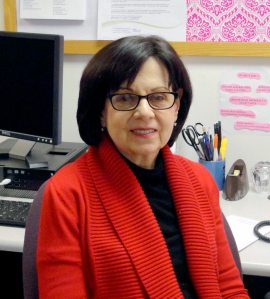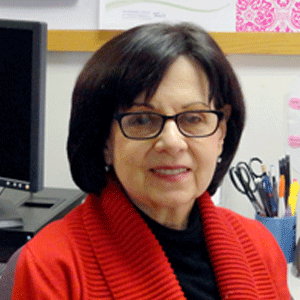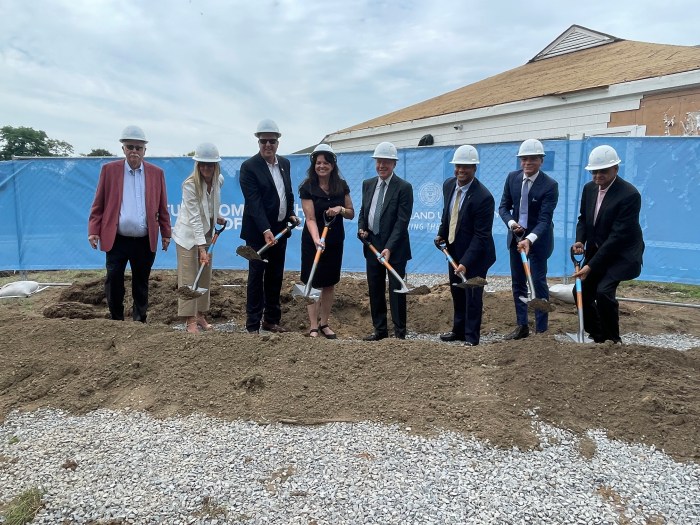
As a volunteer for the Adelphi NY Statewide Breast Cancer Hotline, Reva Rothenberg of Roslyn Heights answers calls from women concerned about breast cancer. A breast cancer survivor herself, Rothenberg is at the hotline, which is located at the Adelphi University School of Social Work in Garden City, for two hours every Wednesday. She is there to provide emotional support and information to callers going through this difficult time.
Rothenberg was diagnosed with breast cancer eleven years ago when she went for her annual mammogram. Her mammogram was clear but because she has dense breasts, she routinely received a sonogram and that is how the tumor was found. She says the most anxious time for her was waiting for the pathology report but once she received the diagnosis and made decisions about treatment, she was less anxious.
Rothenberg feels that without the sonogram her tumor would not have been discovered until it was much larger. About 40 percent of women who get mammograms have dense breast tissue, which means they have less fatty tissue and more non-fatty tissue compared to breasts that aren’t dense.
This makes it harder to detect breast cancer; breast cancers (which look white like breast gland tissue) are easier to see on a mammogram when they are surrounded by fatty tissue (which looks dark). Until recently, that information was rarely relayed to patients but now women are receiving letters from their doctors about their breast density because of state legislation championed by Nancy Cappello of Connecticut. Cappello’s breast cancer had spread to her lymph nodes by the time it was diagnosed, even though she had had normal mammograms every year.
“I think everyone, particularly everyone who has dense breasts, should discuss sonograms with their doctor,” said Rothenberg.
Rothenberg decided to become a hotline volunteer because she wanted to offer understanding and support to other cancer survivors.
“People often feel more comfortable speaking to a stranger, although we do not remain strangers very long,” she said.
Surprisingly, Rothenberg has found that some women especially need the hotline after they have finished treatment. So much energy and thought has gone into the treatment process and now they have the new reality of being a breast cancer survivor.
“’Now what?,’ they wonder,” said Rothenberg. For some, such as Rothenberg, part of the new life means becoming a hotline volunteer to help others. “I know I have helped people and that is very gratifying, but I also have gotten a great deal personally from my experience on the hotline,” she added.
The Adelphi NY Statewide Breast Cancer Hotline & Support Program was established 34 years ago. To reach the hotline, call 800-877-8077.
































